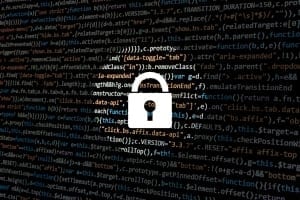Cyber security fatigue: what is it and how can your business avoid it?

Unfortunately, it is still the case that humans are the weak link in cyber security – and cyber fatigue has a role to play in this. Most businesses understand that they need to provide their staff with cyber security training. Staff are, after all, an important line of defence. This is an important step in protecting against cyber fatigue, and there are others that are important too.
Cyber security fatigue can be highly damaging, as a poor cyber security culture can make businesses more vulnerable to attacks. Here are five ways to avoid cyber security fatigue.
Share the responsibilities for security
One of the most common reasons for cyber fatigue is a belief amongst employees that cyber security is the responsibility of the IT team. Cyber security is a company-wide responsibility that should be practiced from the boardroom down. If employees don’t see senior management upholding best practice, they won’t be inclined to follow.
Cyber security has become too broad for it to be left to be dealt with by a single department. Every member of your team has a role to play in helping to foster a strong security culture.
Consult with experts in cyber security
Too many organisations suffer cyber fatigue because they attempt to work with cyber technology that simply is not suitable for a business of their size – or they misunderstand the level of on-going management required for the technology to remain effective. Many security systems generate a huge number of alerts which then need to be investigated.
To help reduce cyber security fatigue, seek the advice of security experts like Apiiro before making new investments and, if required, to help manage and monitor systems. If you do not have this kind of expertise in-house then you should work with an outside agency who can provide advice, guidance, and assistance to ensure that you are making the right investments.
Provide regular training sessions
If staff are educated about good security practices but the information isn’t presented in the right way, it can lead to them feeling overwhelmed or uninterested. It is vital, then, to offer regular training sessions and to ensure that these sessions are relevant and engaging. Sessions can be ‘gamified’ and you could consider commissioning a simulated phishing assessment to see how employees respond to a real-life scenario.
It is also important to regularly review the content of these training sessions. Cybercrime is a fast-moving and evolving challenge with new issues arising all the time – your training sessions need to be up-to-date if they are going to be useful.
Regularly review your security tools and practices
“With threats continuing to grow in both volume and sophistication, performing a pentest to understand how an attacker might breach your business’ defences and the appropriate action needed to address the risk is an important part of effective cyber security.
Insecure network configurations, authentication problems, as well as flaws in application source code and logic, are just three in a long line of underlying vulnerabilities that could be exploited by criminal hackers. With your organisation’s attack surface continuing to grow, keeping out the bad guys is an uphill struggle.” Redscan, 2018 Computing Security Awards Winner
Cyber security challenges are constantly changing, with new risks evolving and others becoming less relevant. So, one of the most important ways to reduce cyber security fatigue is to know when to conduct the most relevant activities, and to ensure that your efforts remain effective.
You may also benefit from investing in new technologies that can minimise the risk of cyber fraud – reducing cyber fatigue by removing some possible attack surfaces. A great example of this is esignature software which allows for individuals to electronically sign documents, giving them authenticity and the protection of a full audit trail, making them harder to forge.
Learn from mistakes of other businesses
It is important for organisations to learn from the mistakes of others. Do not ignore reports of breaches in the news – these can be some of the most useful case studies. Should a new type of social engineering scam be reported, for instance, ensure you should train your staff about how to identify the warning signs.
When a type of attack is successful against a business then it likely to be repeated against others. This is why it is essential to raise awareness of the dangers.
